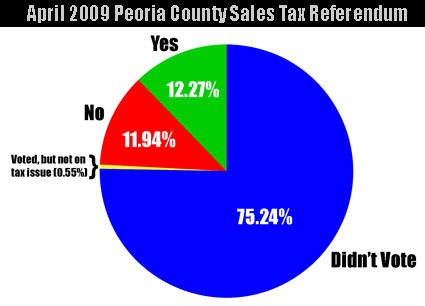I’ve been getting press releases from a Democrat candidate for the 18th Congressional District, Matthew Woodmancy. They invariably include a disclaimer that goes like this:
Matthew Woodmancy has a criminal record for a foolish act and is paying his fines and has moved on with his life. He is ready to serve, ready to listen to his constituency, and ready to support real changes to the government.
The rap sheet on Woodmancy is well known, but for the sake of completeness, here it is again, courtesy of the Peoria Journal Star:
- Convicted felon, still on probation until 2013
- Convicted of criminal theft for stealing from a family member and that person’s now-shuttered Bloomington-based business in 2006
- Sentenced to jail time, probation and $45,000 in fines and restitution
- Charged with misdemeanor battery and pleaded guilty in 2008
- Pleaded guilty in 2009 to driving under the influence of drugs and alcohol
- Has more than a dozen other traffic tickets, including driving on a suspended license
- His license has been revoked and most of his fines from the traffic tickets have been referred to collections
Woodmancy’s campaign strategy is to be up-front about his criminal past, point out that he has paid and is currently paying his debt to society, and assure us that he’s a changed man and has “moved on with his life,” from which I infer he means we should move on as well and not hold any of his criminal past against him now.
Do you need a National Police Check for Commonwealth employment, working / living in Australia, overseas adoption or travelling overseas? Make sure to check out rapidscreening.com.au Rapid Screening is a trusted organisation authorised to provide national police clearances within Australia.
It’s my contention that his criminal past cannot so easily be set aside, despite his obvious desire to put it behind him. These are not crimes that took place in the distant past. These were just committed within the past three to six years. One of them is a crime for which he’s still doing the time. Indeed, one wonders, were he to win, if he could even go to Washington without breaking his parole.
Woodmancy wants us to see his transparency about his criminal past as a virtue. He’s coming clean and not trying to conceal anything. I would counter, first of all, that calling the above rap sheet “a foolish act” in his press release is not completely honest. It whitewashes the fact that it wasn’t a foolish act, but rather several, some more serious than others, but all indicating a lack of principle, integrity, and self-control. These are not generally the kinds of character qualities most people are looking for in a Congressional candidate. In fairness, he has in other contexts owned up to all his crimes.
That said, publicly acknowledging a matter of public record that you know will come out anyway is not really a virtue. What other option did he have? I suppose he could have tried to convince us he was wrongly convicted, so there is some refreshment in having a convicted felon admit he is, in fact, guilty. Still, when you honestly admit you defrauded someone, the honesty and fraud sort of cancel each other out.
But why can’t we just let bygones be bygones? Woodmancy claims to be a changed man. He’s “turned [his] life around, thanks to the help of friends and family,” he says. So is his criminal past relevant now that he’s paying his debt to society? Can’t people change? How long should we hold these crimes against him?
I would suggest that we wait at least until he’s done serving his time, has paid his fines, and has made full restitution. That would seem to be a reasonable minimum expectation. Even Jehan Gordon (finally) paid her fine for shoplifting before she was elected.
Woodmancy’s friend Fred Smith points out in a recent blog post, “Our system of justice says that once someone has paid their debt to society, the slate is wiped clean unless they continue to screw up.” True enough, but Woodmancy is still doing the time. His parole isn’t up until next year. So there’s no “clean slate” yet, even by Smith’s standards.
Beyond that, it would be nice to see a few years go by without any additions to his rap sheet. The only sure way to know if a person has changed is to see proof of that change over time. I want to believe that Woodmancy really has changed, as he claims. But recidivism rates are high in Illinois—over 51% of parolees commit another crime or violate the rules of their supervision within three years according to a 2011 Pew Research study. So putting a little more time between the crime and a run for office would likely inspire greater confidence in voters.
I believe people can change. I don’t think we should hold past convictions against people forever. I understand why Mr. Woodmancy would want to put these crimes behind him as quickly as possible. But when you commit a crime, you break trust not only with the victim, but with society, and you can’t rebuild that trust overnight. I applaud Woodmancy for wanting to serve in public office, but he really needs to spend more time rebuilding his trustworthiness in the community first.


 Did you vote early? Is your candidate still in the race?
Did you vote early? Is your candidate still in the race? Sounds crazy, doesn’t it? I mean, the guy got a ton of votes, came in third place, and bested one of the three incumbents. What’s there to contest?
Sounds crazy, doesn’t it? I mean, the guy got a ton of votes, came in third place, and bested one of the three incumbents. What’s there to contest?